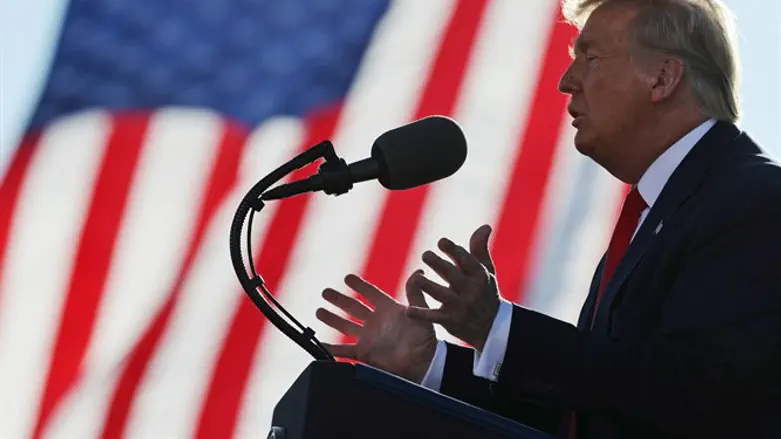
Despite near-universal concession by mainstream media outlets of the 2020 U.S. Presidential elections to the Democratic candidate, President Trump has continued to maintain that he may yet head the next American administration, and his team and those around him persist in supporting that message.
Speaking on the Dr. Gina program on Real America's Voice, the President's daughter-in-law Lara Trump explained one of several possible paths to victory for President Trump being discussed.
Dr. Gina asked Trump: "What exactly is going to go down on January 6th?"
Trump answered: “Well, this is really the date of ultimate significance, so, it is the date that Congress certifies the election. It's funny because you haven't heard, Dr. Gina, much about this out there, and I kept having people come up to me and say, ‘Is there hope? You know, post December 14th, when the electors voted, is there still hope?’
“Absolutely there is! Because the reality is the Founders of this country set up this process for a time such as this. So what will happen on January 6th is that it is a joint session of Congress, and all of the electoral votes have now been sent to Washington D.C., they will be opened by Vice President Mike Pence and read aloud for the joint session of Congress.
“And if two House members object to the votes for Joe Biden - just two - then everybody takes a break, they split up, the Senate and the House divide, they go debate, and then they ultimately have to vote to decide the outcome of this election.
“Now here's where it gets really interesting: Each Senator gets one vote. Now we know, we've been talking about - we just talked about - how important it is to hold the majority in the Senate, but, we do right now have the majority in the Senate. And don't forget, the Vice President also counts as a Senate vote.
“So, the Senate gets one vote and then, as far as the House is concerned, it is each delegation. So that doesn't mean that each House member gets a vote, that means each delegation, so each state ultimately gets a vote.
“What's really interesting about this, Dr. Gina: The Republicans are in control of 30 of those votes; the Democrats are in control of only 20. So if it comes down to a vote, and the Republicans in the House and the Senate decide, ‘Gosh, there was so much fraud in this election, we have evidence of it, we have affidavits, thousands of them.. we have evidence of the fact that there were more people that voted in the State of Pennsylvania than even were registered to vote, thousands of dead people voting; if for whatever reason they decide they will not certify this for Joe Biden, and they vote for Donald Trump, then guess what? Donald Trump remains President of the United States for the next four years.”
Others, however, say "not so simple", citing at least two issues at play: 1) What happens when a Senator and House Member object to the electoral college votes? In this case, the objection will be defeated unless both chambers support it, which is unlikely, since Democrats control the House.
2) What happens when there are two sets of electors? This is a much more complicated legal scenario. Does Vice President Mike Pence have the power to choose which set of electors to accept? And are State Governors or State Legislatures the final arbiters of each state's electors?
It has been suggested that the scenario that Lara Trump describes, where each state delegation in the House gets one vote only, which Republicans would win, applies only in the case of a tie in the number of electors, or neither candidate getting to 270 electoral votes, e.g. if an objection succeeds in eliminating some states' votes. Where someone objects and a simple majority winning vote is required in both chambers for the objection to succeed, currently will not happen because Democrats control the House.
